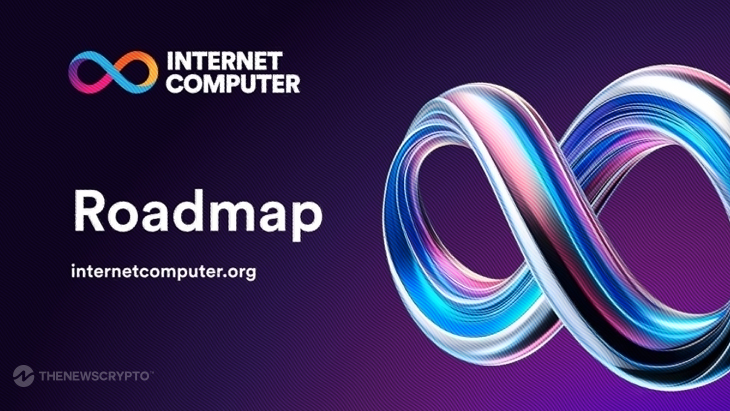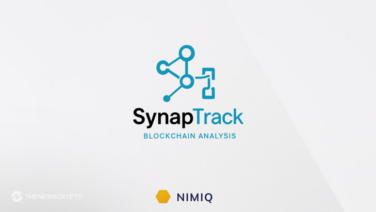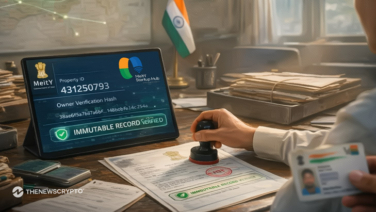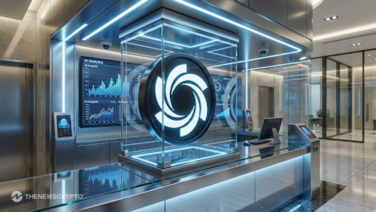As it commemorates the third anniversary of its mainnet debut, Internet Computer Protocol (ICP), a decentralized blockchain network that expands the capability of Web3 by overcoming the constraints of conventional blockchains and smart contracts, today announced the “Year 4 Internet Computer Roadmap”. The updated roadmap includes major areas of development aimed at positioning ICP as the hub for Decentralized AI and the blockchain industry’s orchestration layer, while also summarizing three years of progress.
The Internet Computer blockchain, which was introduced in May 2021, has processed over three billion blocks, had zero outage, and amassed over $3 billion of value locked in the Network Nervous System (NNS) DAO, which governs the Internet Computer Protocol. The ICP ecosystem has seen similarly remarkable developer growth. Even though the ICP mainnet didn’t start until May 2021, according to Electric Capital, the number of developers in the ecosystem increased 12 times between 2020 and 2023. Furthermore, DMail, DSCVR, and OpenChat—some of the most popular crypto applications—are hosted on ICP.
A number of significant milestones and important focus areas are outlined in the revised roadmap for the fourth year of ICP. The new roadmap features two of its main features: Chain Fusion and Decentralized AI.
“The Internet Computer is the first and only public blockchain of the Third Generation”, according to Dominic Williams, the founder and chief scientist of the DFINIY Foundations. The goal is to create a “blockchain singularity,” in which completely decentralized blockchains eventually overtake other tech stacks worldwide, operate securely, and unstoppable AI. With a new roadmap in hand, the DFINITY Foundation and its distinguished group of engineers, research scientists, and cryptographers are advancing the cause and creating upgrades to the network that will increase its speed, effectiveness, and power.
Decentralized AI
The Decentralized AI (DeAI) roadmap from ICP outlines a course for on-chain training and operation of AI models. Artificial intelligence (AI) is becoming more and more integrated into our daily lives. However, most AI models now operate as “black boxes,” with users having no control over how their data is utilized or how the models generate responses—or whether they do it accurately, consistently, and reliably.
ICP is well positioned to address this issue because of its powerful computing capacity and smart contract expressiveness.
Milestone 1
- 10x increase in speed and faster deterministic floating-point operations
- With Wasm SIMD support, a single CPU instruction may perform four floating-point operations.
- AI inference engine optimization
Milestone 2
- Deterministic API for GPU-based AI computations
- Libraries and tools for creating AI smart contracts
- Public specification for nodes with GPU capability
- AI-focused subnetworks with GPU-capable nodes
If the long-term objectives are met, a number of first-of-its-kind use cases will be possible, including:
- AI smart contracts may use autonomous blockchain KYC to confirm that a person on video is the holder of a driver’s license that matches their picture.
- Artificial intelligence smart contracts that evaluate the Ethereum smart contract code and mark the code with a checkmark if they detect issues such as reentrancy.
- You may communicate with LLM AI smart contracts by utilizing natural language.
- Web3 communities using DAOs to control AIs
- Ready-trained AIs traded as NFTs
It is not new for ICP to be working to bring AI on-chain and provide developers and consumers reliable AI models. A $5 million decentralized artificial intelligence (DeAI) grant program was introduced in July of last year by the DFINITY Foundation, a Swiss non-profit organization that is a significant contributor to the Internet Computer blockchain (ICP). The initiative’s goal is to assist Decentralized AI on the Internet Computer blockchain. ICGPT, DecideAI, ELNA AI, Kinic, and Earthstream are just a few of the cutting-edge AI projects that are already building on ICP.
Chain Fusion
With no intermediaries, ICP’s Chain Fusion enables direct interoperability with popular blockchains like as Ethereum, Bitcoin, and soon Solana. ICP smart contracts let developers to create contracts that span many chains since they can read from and write to other chains. Chain Fusion addresses tribalism in the blockchain sector and resolves liquidity fragmentation.
Its growth plan has many significant milestones:
Milestone 1:
Canister smart contracts can hold and trade tokens on EVM chains and interact with their counterparts’ smart contracts without the need for bridges or centralized intermediaries thanks to Chain Fusion technology, which fully supports EVM chains.
Milestone 2:
The complete decentralized support of Bitcoin ordinals and runes is made possible by Chain Fusion’s full utilization of Bitcoin-native protocols (BRC20, Runes). The finest features of ICP and Bitcoin may be smoothly combined in dApps created by developers.
Milestone 3:
In order to enable smart contracts that integrate the capabilities of the two networks, Chain Fusion will shortly add support for Solana, bridging the gap between the Solana network and ICP. One network’s smart contracts may call another network’s smart contracts.
You can check the whole roadmap here.








